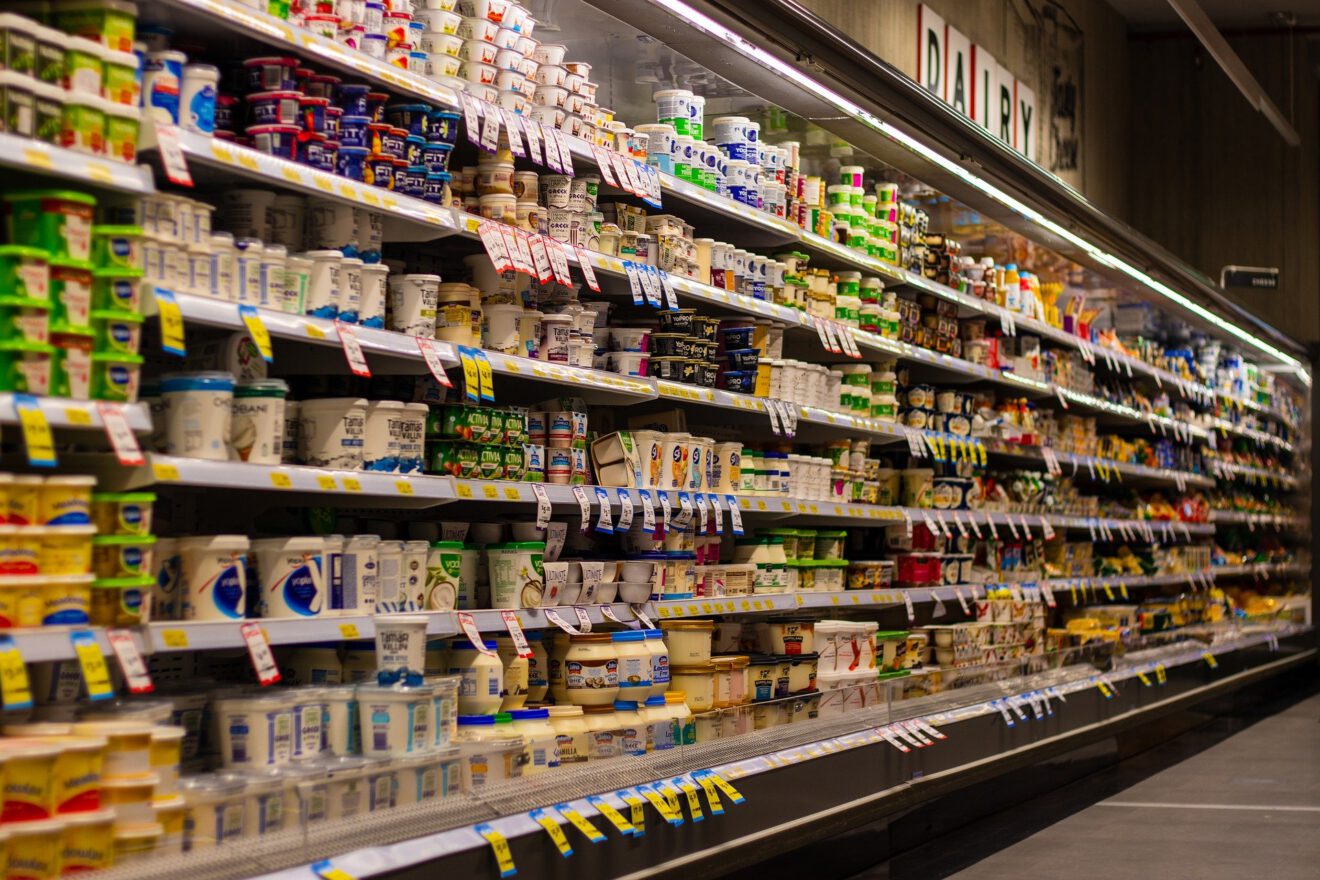Today’s consumers are understandably concerned about the safety of the food they eat, as well as the safety of the grocery stores in which they purchase it. While the Centers for Disease Control and Prevention has concluded that the risk of contracting COVID-19 from eating or handling food and food packaging is very low, the food industry is still being called to act as stewards of superior sanitation and safety.
Some 67% of consumers say they feel confident in the safety of the US food supply, according to data from the International Food Information Council, though food handling and food preparation related to COVID-19 risks was the major food safety concern for 24% of respondents. The organization also found that shoppers with children under the age of 18 were more concerned about in-person shopping than those without young children.
Grocers and CPG producers are taking different measures to ensure the safety of the food they sell, as well as the safety of their employees and consumers.
Taking safety to new levels
Early on in the pandemic, grocers took simple steps to encourage social distancing in an effort to keep employees and shoppers safe. Plexiglass partitions, one-way aisles and safety masks popped up in April, followed by capacity limits, bold signage and, eventually, mask mandates.
As the pandemic continues, grocers and food producers are taking further steps to ensure safety, including those rooted in technology. Ahold Delhaize, for example, recently held a Cleaning Bot Challenge that invited companies to share smart technology solutions for in-store cleaning. Fybots was chosen as a winner for its flexible autonomous solution and will now test its technology inside Ahold Delhaize stores.
“A clean environment for associates and customers is now more important than ever,” Ahold Delhaize President and CEO Frans Muller said in a press release. “Cleaning tasks are often physically demanding and include many repetitive tasks. Increased cleaning cycles, due to COVID-19, have put teams under a lot of pressure. Robotics can help these associates.’’
Additionally, several national grocery retailers are in talks with inventor Adam Labadie about his automated Arch Cart Sanitizer solution, which uses chemicals approved by the EPA to kill the coronavirus and other germs. About 20 million grocery carts are touched 200 times per day, and the wipes used to sanitize them account for the third-largest item in landfills, according to Labadie.
On the food production side, Tyson Foods is researching robots as a potential long-term solution to meatpacking work that has proven to be vulnerable as the pandemic continues. Designers from the auto industry are helping the company create machines that can assist with deboning and slicing meat and poultry.
A focus on employee safety
CPG companies, especially meat processors like Tyson, have been at the forefront of challenges related to employee safety. Companies like Perdue Farms, for example, are pulling out all the stops in order to keep their employees safe and healthy.
Perdue Farms Chief Marketing Officer David Zucker detailed the measures the company is taking within its plants to keep employees safe in a recent eMarketer podcast, including associate temperature checks, barriers between workstations, regular meetings to ensure a holistic approach to safety and health facilities for associates and their families.
Likewise, Tyson has created a chief medical officer role within the company, while also hiring nearly 200 nurses to support employees amid the pandemic.
“This position will help implement our Covid monitoring strategy, which includes ongoing, weekly testing of workers without symptoms, as well as testing of those who have symptoms or have had close contact with someone with symptoms or has tested positive,” Tom Brower, senior vice president of health and safety, told The Wall Street Journal.
Tim Metcalfe, owner of Metcalfe’s Market, told Winsight Grocery Business that the company ensures staffers avoid overtime while also taking time off as necessary. “We make sure that we don’t overtax our people because we need them for at least another couple of months during this time,” he said, adding, “They’re critical. They’re critical employees. They’re critical people in this emergency.”
Stepping forward
It’s no surprise that many of the safety practices put into place at the beginning of the pandemic are likely to stick around for a while. Food safety expert Todd Frantz believes grocers should put a premium on creating and enforcing a culture of safety.
“Grocery stores have been at the forefront of the pandemic response for some time and they will be the first to adopt ‘new normal’ procedures,” he writes. “Specific guidelines around health and safety evolve, but the fundamentals of health and safety stay the same. Stores that strive to maintain high standards around cleanliness and sanitation are likely to be better positioned for the inevitable next time.”
Related stories:
- Restaurants invest in tech tools to increase safety during the pandemic and beyond
- Creating an experience at food retail is rapidly evolving
- The state of sustainability during COVID-19 in the food industry
_____________________________________
If you enjoyed this article, you can sign up for Consumer Brands SmartBrief or FMI dailyLead to get news like this in your inbox. For even more great news content, sign up for any of SmartBrief’s 275+ free email newsletters today, free.
